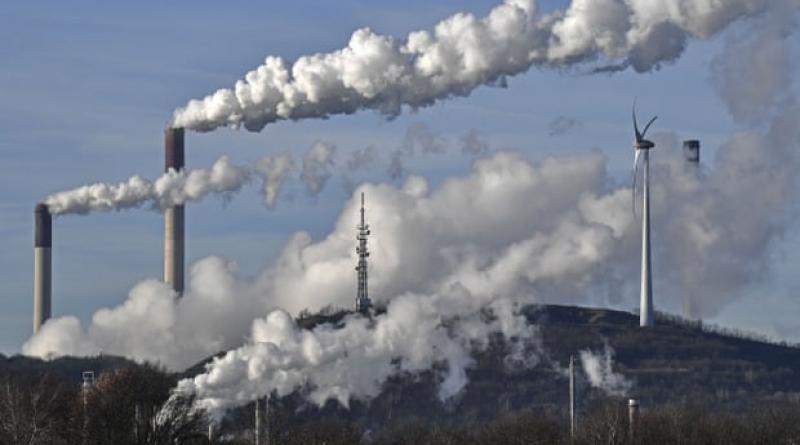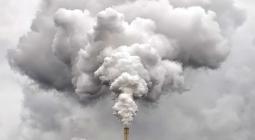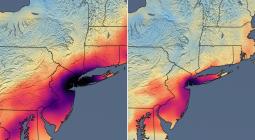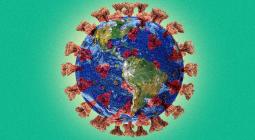Coronavirus pandemic prompts record drop in global emissions, study finds.

- Lockdowns, travel bans and factory closures drive reduction
- Dramatic decline falls short of necessary global heating cuts
The coronavirus pandemic has led to the largest drop in heat-trapping emissions in human history, according to a new study.
Lockdowns, travel bans and closed manufacturing sites have caused global emissions to drop by 4.6%, or 2.5 gigatonnes, according to a University of Sydney review of 38 regions and 26 sectors published in the journal Plos One. Fine particle pollution decreased by 3.8% and two other types of air pollution declined 2.9%: sulfur dioxide – which is linked to a number of respiratory issues, and nitrogen oxide, which leads to smog.
The largest emissions drops occurred in the United States and China, largely due to grounded air travel and a decrease in power, water and gas use, but they come with a large economic cost.
From late February to May, the study found the pandemic caused 147 million people, or 4.2% of the global workforce, to lose full-time jobs and triggered a $3.8tn drop in consumption, making it the worst economic shock since the Great Depression, according to co-author Arunima Malik.
Europe also saw a significant economic dip, but it lagged in emissions reductions because its economy is less reliant on fossil fuels.
The dramatic decline still falls short of the efforts needed to limit global heating to 1.5C by 2050, however. Even if global greenhouse gas emissions were to sustain the 4.6% decline each year, emissions would need to drop another 3% every year between 2020 and 2030 to be on track to limit global warming and avoid the most extreme outcomes of the climate crisis. And emissions will rebound as countries reopen.
The last time the globe experienced a dramatic drop in emissions was during the 2009 financial crisis, which decreased carbon dioxide emissions by 0.46 gigatonnes.
The economic downturn of the last three months will deepen socioeconomic vulnerabilities, widen wealth gaps and overburden healthcare systems, especially in lower-income countries, according to the study.
“This is the dilemma of the social, environmental and economic systems – the fact that these systems are so interconnected and you can’t really address one system in isolation,” Malik said. “So there’s an economic downturn that results in reduction of emissions. But so many people have lost their jobs, and the environment might not be the top priority for them.”
A separate new analysis from the Massachusetts Institute of Technology, Yale and Northwestern universities found that pushing back investments in renewable power for one year could outweigh the emissions reductions and deaths avoided from the reductions in pollution that have been seen since March.
Malik said the reductions necessary would require a complete redesign of the economic systems.
“When it comes to the post-pandemic world, I would like to think that perhaps this is an opportunity for us to redesign the systems in a way that they are sustainable and inclusive,” Malik said. “I don’t have a perfect answer to this and I don’t think most people do – it’s a dilemma in our systems.”
10 July 2020
The Guardian




